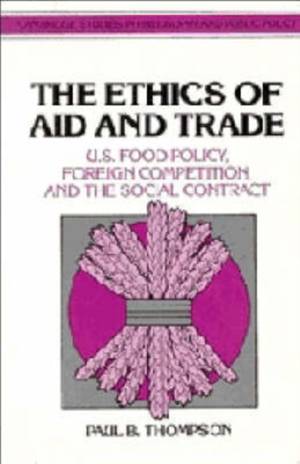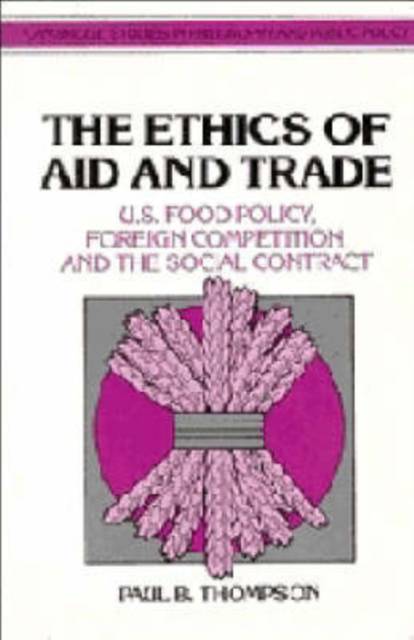
Bedankt voor het vertrouwen het afgelopen jaar! Om jou te bedanken bieden we GRATIS verzending (in België) aan op alles gedurende de hele maand januari.
- Afhalen na 1 uur in een winkel met voorraad
- In januari gratis thuislevering in België
- Ruim aanbod met 7 miljoen producten
Bedankt voor het vertrouwen het afgelopen jaar! Om jou te bedanken bieden we GRATIS verzending (in België) aan op alles gedurende de hele maand januari.
- Afhalen na 1 uur in een winkel met voorraad
- In januari gratis thuislevering in België
- Ruim aanbod met 7 miljoen producten
Zoeken
The Ethics of Aid and Trade
U.S. Food Policy, Foreign Competition, and the Social Contract
Paul B Thompson
€ 100,95
+ 201 punten
Omschrijving
The traditional military-territorial model of the nation state defines international duties in terms of protecting citizens' property from foreign threats. In this book about the principles of the U.S. agricultural policy and foreign aid, Professor Thompson replaces this model with the notion of the trading state that sees its role in terms of the establishment of international institutions that stabilize and facilitate cultural and intellectual, as well as commercial exchanges between nations. The argument focuses on protectionist challenges to foreign aid and development assistance programs, and engages with the views of a variety of economists, commodity organizations, and philosophers on world hunger and development. What emerges is a new interpretation of social contract theory that can determine goals for international trade and development policy.
Specificaties
Betrokkenen
- Auteur(s):
- Uitgeverij:
Inhoud
- Aantal bladzijden:
- 246
- Taal:
- Engels
- Reeks:
Eigenschappen
- Productcode (EAN):
- 9780521414685
- Verschijningsdatum:
- 31/07/1992
- Uitvoering:
- Hardcover
- Formaat:
- Genaaid
- Afmetingen:
- 152 mm x 229 mm
- Gewicht:
- 530 g

Alleen bij Standaard Boekhandel
+ 201 punten op je klantenkaart van Standaard Boekhandel
Beoordelingen
We publiceren alleen reviews die voldoen aan de voorwaarden voor reviews. Bekijk onze voorwaarden voor reviews.









